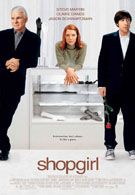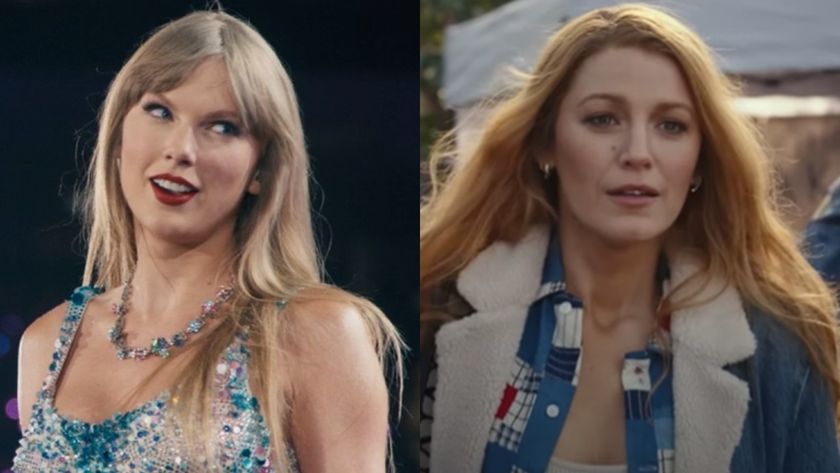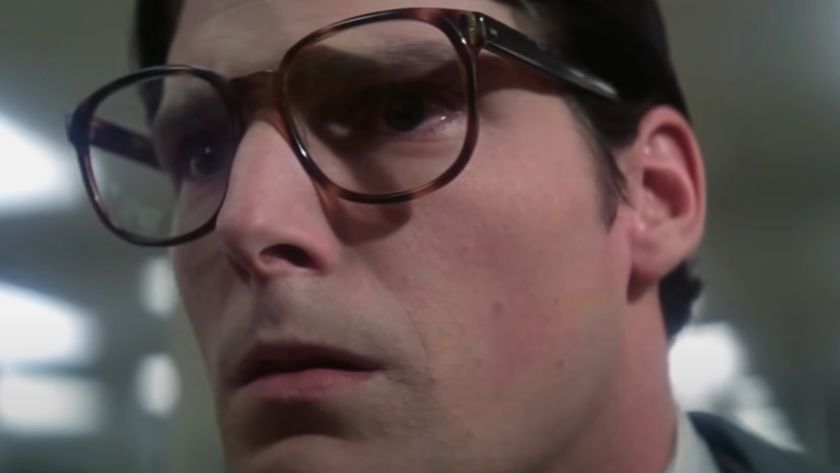Shopgirl is the big screen adaptation of Steve Martin’s popular novella, which plays better on paper than on the big screen. Mirabelle (Claire Danes) is a sullen retail clerk at the glove department of Saks 5th Ave. She spends her days trapped behind the counter, staring into space, and waiting for Prince Charming to rescue her. But the story takes place in Los Angeles, where romance is nothing more than a projected hallucination. I guess she should have read the pamphlets before moving from Vermont.
While washing clothes at a Laundromat, she meets Jeremy (Jason Schwartzman), a grungy, scruffy artist completely devoid of game. He awkwardly initiates small talk, clueing her in that he’s “an okay guy, by the way.” They exchange numbers, and he takes her on a date to visit City Walk and ogle at the outside of the Imax movie theater. Going inside would cost money, of which Jeremy has none to offer. The date is a bust, but Mirabelle is lonely enough to call him over for sex a short while later. The magic is missing, but at least it’s one night she won’t have to spend completely alone.
Enter Mr. Suave, Ray Porter (Steve Martin) who comes into the store with his snazzy suits and perfectly slicked hair. Who cares if he’s old enough to be her granddaddy, at least he makes good bank. He buys an expensive pair of gloves at her counter, and Mirabelle comes home to find them waiting for her in a neatly wrapped box, with a card asking her to dinner. While such stalkerish behavior might scare most women into running for the hills, Mirabelle accepts his invitation and they have a meal at an upscale restaurant. Before long, their relationship escalates and they’re doing the deed back at his fancy pants mansion.
Everything is great, except that Ray informs her after they sleep together that he travels a lot and they should keep their options open. Basically, he’s a shallow, detached guy who wants a young pretty lady at his disposal on the rare occasions he is home. In return, he buys her expensive dresses and pays off her hefty student loans. Mirabelle may see romantic potential, instead of what the arrangement truly is: glorified prostitution. Meanwhile, Jeremy is on the road helping rockers with their gear, and is introduced to a slew of self-help DVD’s that get him in touch with his well-hidden classy side.
Shopgirl has promise, as a film about lonely people struggling to find purpose in L.A., but the execution is all over the place. It begins as a bittersweet comedy and then dives headfirst into minimalist drama. The repetitive, jarring slam-a-piano-note score seems to just add into the confusion of the tone. Jason Schwartzman offers witty comic relief, and is sorely missed when he vanishes for long stretches of the movie. The story revolves mainly around the relationship between Mirabelle and Ray, but it fails to be interesting because his character is a big raging bore. We really don’t know much about him, except that he seems to be a bit of an arse with nothing to offer but cash. His involvement in Mirabelle’s life leads her to travel from spacey la-la land into a crying world of desperation.
The biggest issue with Shopgirl is that it seems clear that neither of the men are right for her, and they both just happen to be around at different moments. Even for a film that revels in its anti-romantic stance, there is something too downbeat about seeing people latch onto whoever is nearby, like proximity infatuation. It wasn’t the fact that she was dating such an older man that seemed grotesque; it was that their story simply wasn’t worth telling. A lack of purpose and invigorating new ideas keep the film at a distance. Shopgirl has the ingredients for greatness, but sadly, the final product winds up half-baked and stale.
Most Popular






